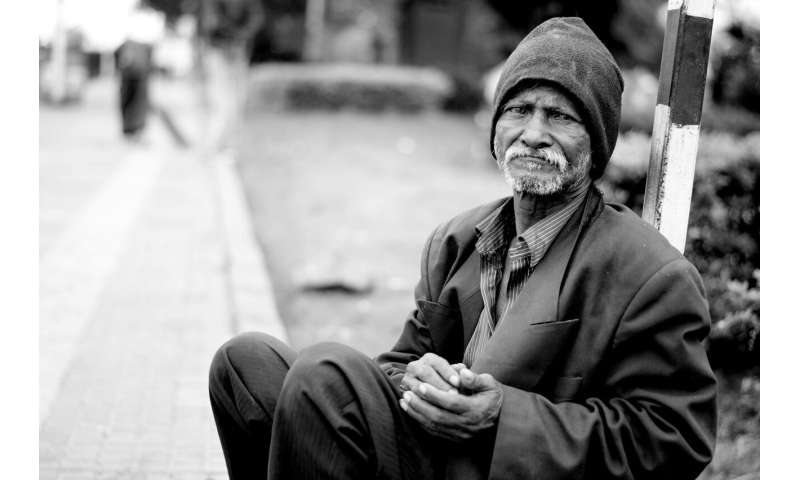

While Australians are being urged to stay home and self-isolate, more than 100,000 Australians experiencing homelessness are at high risk of COVID-19 because of chronic health conditions and no home in which to isolate.
Associate Professor Lisa Wood from The University of Western Australia’s School of Population and Global Health said in Perth alone it was estimated 1000 people were sleeping rough and requiring urgent accommodation.
“Countries such as the UK and France have moved more quickly to get people sleeping rough into accommodation,” A/Professor Wood said. “However in Australia this is happening on a small ad-hoc basis in some states, but it needs to happen across the country and more urgently.
“Our research data shows that more than one-third of people sleeping rough in Perth last year have been to hospital within the last three years for at least one of the health conditions. This puts them at much higher risk of COVID-19 death or medical complications.
“If they get sick with COVID-19, many will become very ill, and this will add to the pressures already being forecast for our hospital system.”
A/Professor Wood said the more quickly people could be moved off the streets and into accommodation where there was access to healthcare support and COVID-19 testing, the more infection could be slowed and people needing to go to hospital could be prevented.
“This will take pressure off the health system which is already stretched to its limits, and we are all going to benefit from that, she said.
A/Professor Wood and her team, in partnership with Perth’s largest homelessness healthcare provider Homeless Healthcare, have developed a short screening tool that identifies whether rough sleepers presenting to hospital or homeless services have risk factors that make them more vulnerable to COVID-19.
This is based on published data from China’s COVID-19 fatalities that people with existing respiratory conditions, diabetes, heart disease, hypertension or being immune-suppressed were at higher risk.
“Age is also a factor in assessing COVID-19 risk, and we know that people who have been homeless for a long time age much more rapidly, so rough sleepers aged 50 or more are likely to have health conditions and frailty on par with that of people around 70 in the general population,” she said.
“Our most vulnerable are being left to fend for themselves in environments where COVID-19 infection and spread is much more likely—on the street for example people often huddle together for warmth and safety at night.
“The advice from colleagues in the US is that once COVID1-19 gets a hold in the homeless community, it could spread like wildfire among people homeless and more broadly.”
A first for Australia, as part of the HotelswithHeart initiative, the Pan Pan Pacific hotel in Perth offered late last week to accommodate some of the people sleeping rough in Perth. This has just started as a pilot project supported by the State Government, with support and healthcare access provided by a collaboration of homelessness services and homeless healthcare.
“This is a great initiative, and we hope to see other hotels and accommodation providers follow suit across Australia, with strategies in place to ensure that people have the health and psycho-social support they need,” A/Professor Wood said.
UWA is partnering with Homeless Healthcare to secure funding for a dedicated COVID-19 facility with on-site medical care access for people who are homeless and test positive for COVID-19 or who have symptoms and are awaiting test results.
“This is the type of facility our colleagues in London have already established- it reduces the spread of infection to others and can provide community-based healthcare for those who fall sick with COVID-19, so that only the most critical cases need to be transferred to hospital,” A/Professor Wood said.
Source: Read Full Article